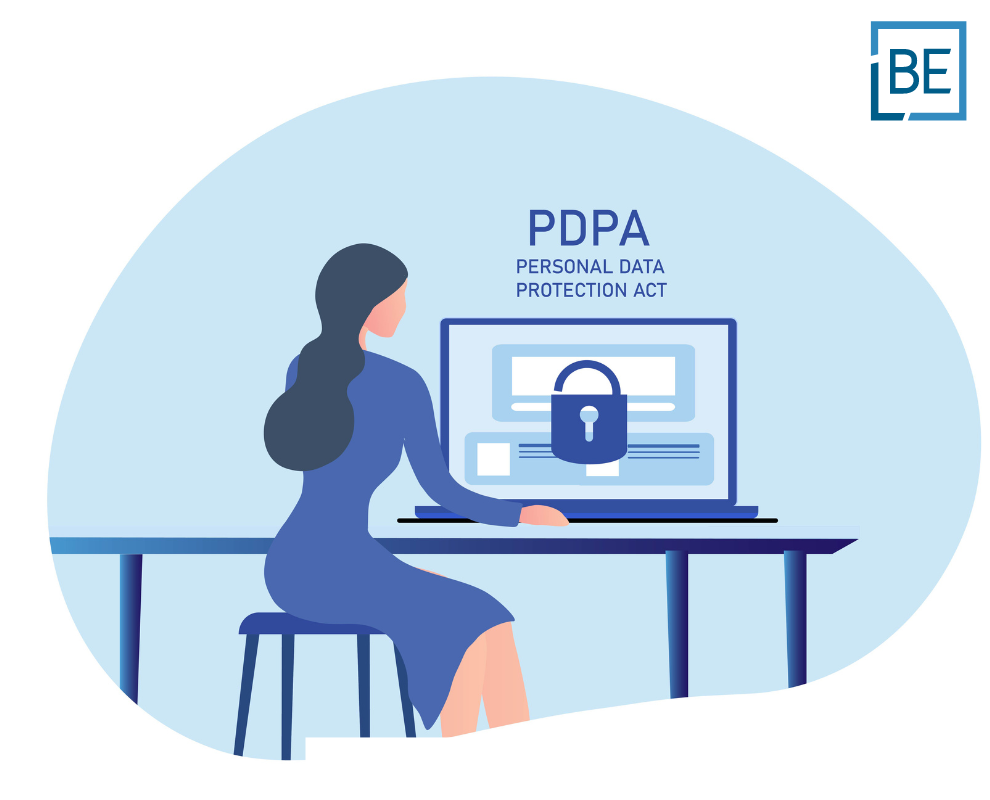en Thaïlande
La plainte pour violation de la loi sur la protection des données à caractère personnel
20/09/2022
Le Comité de protection des données personnelles (PDPC) a établi un règlement définissant les procédures de dépôt et de traitement des plaintes des personnes concernées en vertu de la loi sur la protection des données personnelles B.E. 2562 (PDPA). Le règlement relatif au dépôt, au rejet, à la résiliation, à l'examen et au délai d'examen des plaintes B.E. 2565 (2022) est entré en vigueur depuis 2022.
Cet article explique les exigences et les procédures relatives au dépôt et au traitement d'une plainte en vertu de la loi sur la protection des données à caractère personnel.
Points clés
- Un nouveau règlement a été introduit, décrivant les exigences et les procédures pour le dépôt d'une plainte en cas de violation du PDPA.
- Les plaintes seront évaluées par le "comité d'experts".
- La plainte peut être déposée par écrit ou électroniquement.
- Elle doit être rédigée de manière claire, concise, polie et appropriée, sans laisser paraître une quelconque forme d'extorsion ou d'intimidation, qu'elle soit directe ou indirecte.
Qu'est-ce que le PDPA ?
Le PDPA est une loi qui empêche la violation des informations personnelles d'une personne concernée. La PDPA s'applique à toute collecte, utilisation ou divulgation de données personnelles obtenues par un contrôleur de données ou un processeur de données en Thaïlande. Toutefois, lorsqu'un contrôleur de données ou un processeur de données est situé en dehors de la Thaïlande, le PDPA s'applique toujours si la personne dont les données sont collectées, utilisées ou divulguées est située en Thaïlande.
Dépôt d'une plainte
Une personne concernée désirant déposer une plainte en vertu du PDPA peut le faire auprès du comité d'experts ou directement au bureau du PDPC (Personal Data Protection Committee).
Les plaintes peuvent être envoyées au bureau par courrier ou par voie électronique.
Le Comité d'experts est l'organe établi par le PDPA pour traiter les plaintes et imposer des sanctions administratives si nécessaire.
La plainte, qu'elle soit écrite ou électronique, doit être rédigée dans un langage clair, simple, poli et approprié, sans laisser paraître une quelconque forme d'extorsion ou d'intimidation, qu'elle soit directe ou indirecte. Elle doit contenir les informations suivantes :
- Le nom, l'adresse, le numéro de téléphone ou l'adresse électronique du plaignant (ou d'un représentant autorisé), accompagnés d'une pièce d'identité officielle (carte d'identité, passeport ou autre document d'identité), ainsi qu'une procuration si elle est présentée par un représentant ;
- Les détails et faits relatifs à la non-conformité ou à la violation du PDPA ;
- Les détails des dommages ou de l'impact qui en résultent ;
- Les preuves à l'appui (par exemple, les preuves documentaires, les éléments matériels, les déclarations des témoins) ;
- L'action souhaitée de la part du contrevenant.
Enfin, la plainte doit contenir une déclaration certifiant son intégrité et son respect de la vérité. Cette déclaration doit être signée par le plaignant ou un représentant autorisé.
Examen des plaintes
Après réception d'une plainte, le fonctionnaire chargé de sa réception vérifie qu'elle est complète et qu'elle respecte les exigences énumérées ci-dessus. Ensuite, un accusé de réception est délivré au plaignant.
La plainte est soumise à un examen préliminaire dans un délai de 15 jours avant d'être transmise au comité d'experts par l'intermédiaire du secrétaire général du PDPC pour un examen plus approfondi.
Lors de cet examen, le comité s'attache à déterminer :
- Si l'action décrite dans la plainte constitue un non-respect ou une violation du PDPA ;
- Si les motifs invoqués justifient le dépôt de la plainte et si celle-ci est substantielle et raisonnable ;
- Si la plainte relève des compétences du comité d'experts ;
- Si les fonctions et le pouvoir d'examen de la plainte sont régis par une autre loi ou une autre autorité.
Le comité d'experts peut rejeter une plainte pour diverses raisons, notamment :
- Si la plainte ne concerne pas une violation ou un non-respect du PDPA,
- Si elle contient des informations ou des documents justificatifs incomplets,
- Si elle porte sur une plainte déjà réglée.
Après avoir examiné la plainte, le comité d'experts peut conclure qu'elle est négociable. Dans ce cas, il peut demander au plaignant et à l'auteur de l'infraction d'entamer des négociations en vue d'un règlement mutuel, plutôt que d'imposer directement des sanctions administratives.
Le comité d'experts s'efforce de terminer l'examen de la plainte dans un délai de 90 jours à compter de sa première réunion. Ce délai peut être prolongé deux fois, pour une durée maximale de 60 jours à chaque fois, avec l'approbation du PDPC.
Résultats
Une fois l'examen terminé par le comité d'experts, celui-ci notifie le résultat au plaignant et motive sa décision.
Si la plainte est rejetée parce qu'elle relève de la compétence d'une autre loi ou d'une autre autorité, le plaignant peut alors soumettre la plainte à cette autorité pour examen.
Si la plainte est jugée non négociable ou si les parties ne parviennent pas à un règlement à l'amiable, le comité d'experts procède à un examen approfondi de la plainte et peut imposer des sanctions administratives au responsable du traitement ou au sous-traitant, conformément au PDPA.
Comment Belaws peut-il vous aider ?
Si vous avez besoin de plus d'informations sur le PDPA et sur la manière d'assurer sa conformité, vous pouvez vous adresser directement à l'un de nos experts.
Veuillez noter que cet article est fourni à titre d'information seulement et ne constitue pas un avis juridique.
Nos consultations durent jusqu'à une heure et sont menées par des juristes experts qui parlent couramment l'anglais, le français et le thaï.
Les consultations peuvent être organisées sur WhatsApp ou sur le Logiciel de Vidéoconférence de votre convenance. Une consultation avec l’un de nos experts juridiques est sans aucun doute le meilleur moyen d’obtenir toutes les informations dont vous avez besoin et de répondre à toutes les questions que vous pourriez avoir sur votre nouvelle entreprise ou votre projet.
150 USD
Jusqu'à 1 heure
Paiement en ligne (Paypal ou carte bancaire)
Les consultations juridiques peuvent être menées en anglais, en français ou en thaï.
Les consultations juridiques sont assurées par des des avocats expérimentés dans les domaines concernés.
Questions fréquemment posées
Les étrangers peuvent-ils ouvrir un restaurant en Thaïlande ?
Les étrangers ne peuvent pas être propriétaires à 100 % d'un restaurant en Thaïlande, comme le prévoit la loi sur les entreprises étrangères (Foreign Business Act). Une société thaïlandaise comptant au moins un actionnaire thaïlandais (détenant plus de 50 % des parts) doit être utilisée.
Comment ouvrir un restaurant en Thaïlande ?
- Étape 1 : Choisissez l'emplacement de votre restaurant et signez un contrat de location.
- Étape 2 : Déterminez la structure de la société qui convient à votre entreprise et menez à bien la procédure d'enregistrement.
- VAT registration.
- Obtenir les visas et permis de travail nécessaires.
- Demander les licences d'exploitation nécessaires.
Les étrangers peuvent-ils ouvrir un commerce en Thaïlande ?
Oui, les étrangers peuvent ouvrir une entreprise en Thaïlande. Toutefois, il est important de noter que la loi thaïlandaise sur les entreprises étrangères interdit que certaines activités commerciales soient exercées par des sociétés détenues à 100 % par des étrangers.
Un étranger peut-il ouvrir un bar en Thaïlande ?
Oui, mais comme pour un restaurant, il ne peut s'agir d'une entreprise détenue à 100 % par des étrangers et une société thaïlandaise comptant au moins un actionnaire thaïlandais (détenant plus de 50 % des actions) doit être utilisée.
La Thaïlande est-elle un bon endroit pour créer une entreprise ?
Au fil des ans, la Thaïlande a mis en place une politique efficace en faveur de l'investissement, soutenue par un Bureau de l'investissement (BOI) entreprenant. Un accent particulier a été mis sur le libre-échange et les incitations fiscales. En tant que destination favorable aux entreprises, les investisseurs et les entrepreneurs étrangers en Thaïlande peuvent bénéficier d'un grand nombre de privilèges activement soutenus par le gouvernement, tels que l'exonération de l'impôt sur les sociétés ou l'exonération ou la réduction des droits d'importation. Les avantages non fiscaux comprennent le droit de posséder des terres par le biais d'une société par action simplifiée thaïlandaise ou la possibilité de détenir toutes les parts d'une société en obtenant une licence d'exploitation étrangère ou une promotion du BOI.
Combien coûte l'ouverture d'une entreprise en Thaïlande ?
La constitution d'une société par action simplifiée en Thaïlande avec Belaws commence à 20 000 THB (hors TVA).
Articles connexes
Abonnez-vous aujourd'hui
Abonnez-vous aujourd'hui
À notre newsletter pour les dernières actualités juridiques
en Asie du Sud-Est, les mises à jour de Belaws et
les offres spéciales sur nos services.
To our newsletter today for all the latest legal news in South East Asia,
Belaws updates and special promotions on our services.







